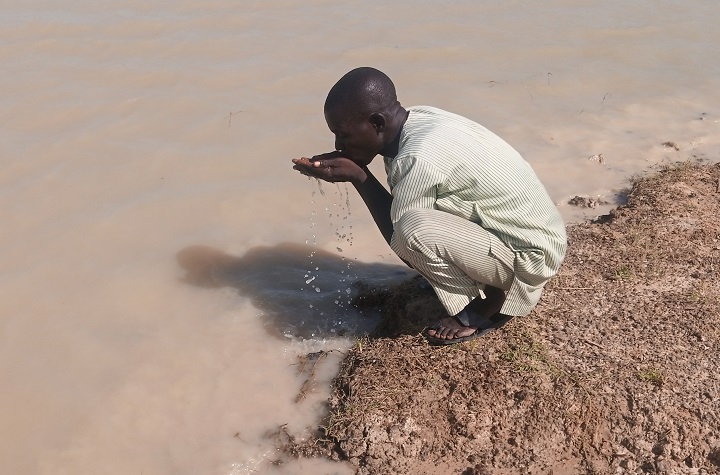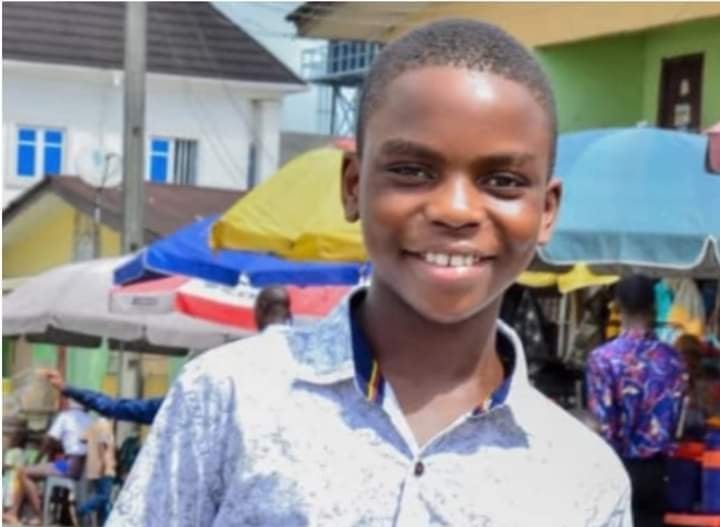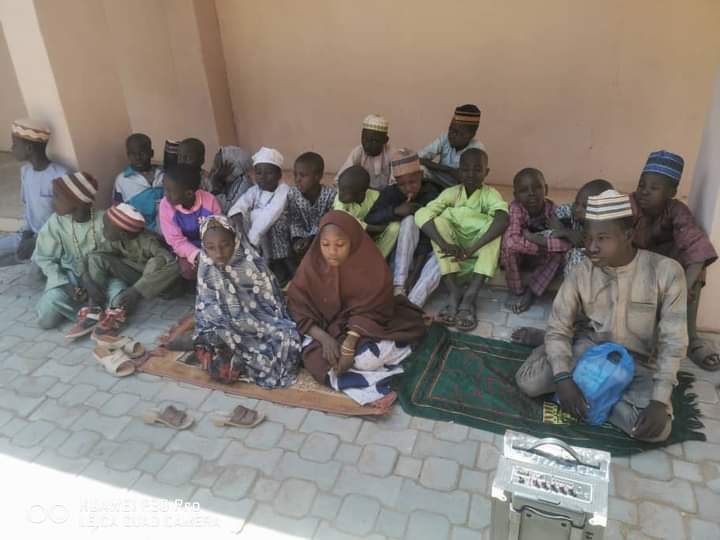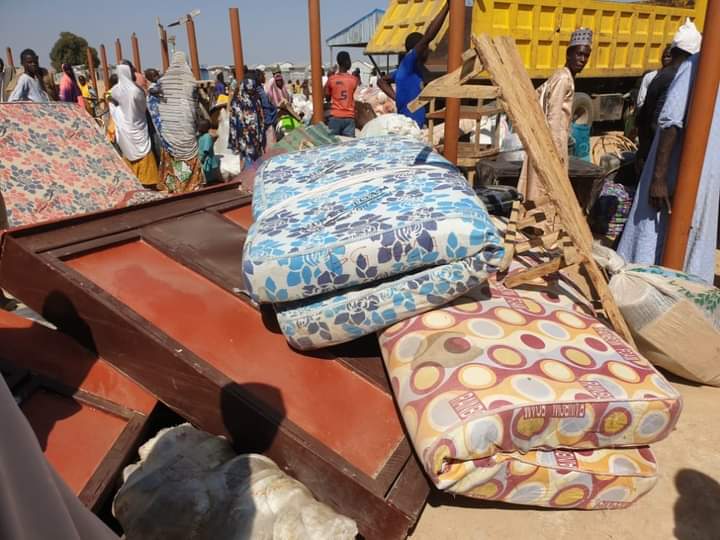Auwalu Mohammad, a resident of Sumaila LGA, drinking water from an untreated dam
With 3,598 deaths recorded from 107,911 suspected cases, Nigeria lost more persons to cholera in 2021 than it has to COVID-19 since early 2020. But despite the startling statistic, communities worst hit by cholera are struggling to respond to the disease, mostly due to state and federal government’s failure to equip them with the necessary resources. According to findings by TheCable’s JAMES OJO, residents are still living in unsanitary conditions, bereft of access to clean and safe water — even as the outbreak lingers.
It has been seven months since Safiya Mohammed lost her first child, Jamilu, to cholera but the pain is still as fresh as the day he died in May 2021 in Gaya LGA of Kano.
“He already paid the bride price of his fiancée and was in the process of finalising the marriage before he passed away,” she said of 32-year-old Jamilu who was the backbone of the family.
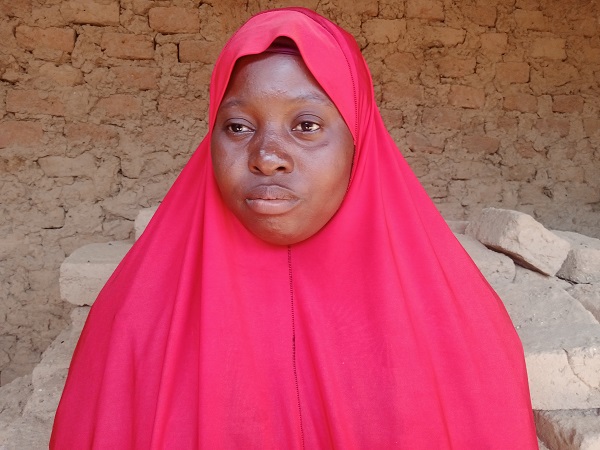
In faraway Bauchi state, Asiya Umar can also relate to such pain, only that she risks losing more. Wakili Umar, her husband, died of cholera earlier in the year and now, all she can think of is how best to keep her children safe from the disease.
Advertisement
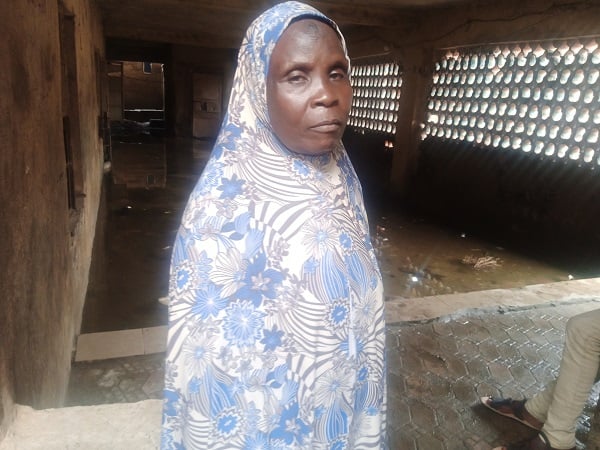
She has genuine reasons to be afraid: At a section of the unkempt building where she lives in Bakin Kura lies stagnant water accumulated from leaking roofs; beside it, there’s a dirty, dimly-lit room housing an uncovered well where they fetch water for drinking and other domestic use; and just behind their kitchen is a pit latrine left open, oozing putrid stench with houseflies having a feast.
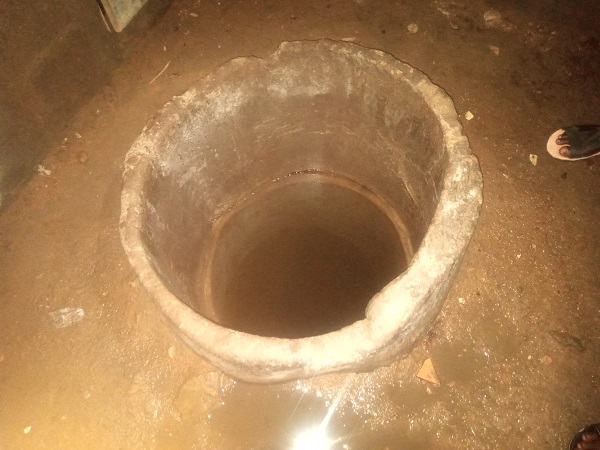
The story is not so different in many households in states worst hit by cholera across northern Nigeria.
Amid a struggle to contain a fourth wave of the coronavirus pandemic, TheCable found that many states are grappling to adequately respond to the outbreak of cholera.
Advertisement
UNDERFUNDED AND OVERSTRETCHED: FIGHTING CHOLERA WITH A HELPLESS SYSTEM
At the general hospital in Warji LGA of Bauchi, an official in charge of the outpatient department (OPD), who is addressed as Alarafe, was the centre of attention for many who had come for medical treatment. This reporter, posing as a patient with cholera symptoms, waited for more than three hours until it got to his turn to meet Alarafe.
“You can’t get his (Alarafe’s) attention easily like that, there’s always a lot on him,” said a trainee health official at the dilapidating hospital which also lacks water supply.
With 19,558 cases, Bauchi is the state worst hit by the cholera outbreak. And although the general hospital is an important facility for treating such diseases, the delay in getting assistance mirrors a common challenge — a dearth of health workers responding to the outbreak in the state.
Advertisement
“The hospital is in a terrible state,” Haruna Abdulahi, a staff member, said. “You must have noticed that the environment was smelling when you entered. The staff is also small.”
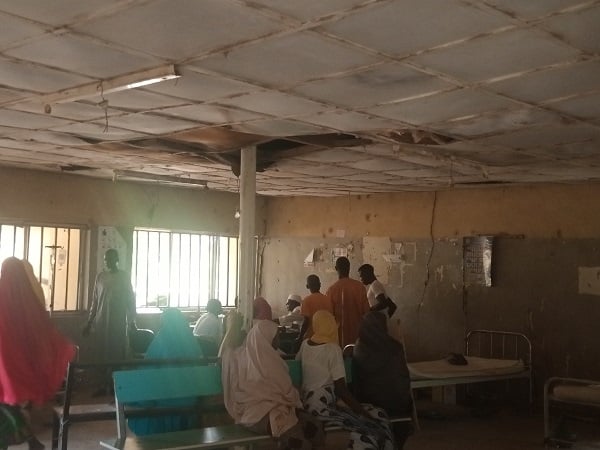
From the general hospital and primary health centre (PHC) in Warji to the government facility in Kafi Madaki in Ganjuwa LGA, where more than 500 cases of cholera are said to have been treated, the conditions are similar: inadequate personnel, poor sanitation, and dilapidated infrastructure.
As is the case in Bauchi, several health facilities visited in Kano — the third most affected state in Nigeria with 12,116 cases — also lack sufficient resources to combat the cholera outbreak in the state.
At the general hospital in Sumaila — the LGA with the highest number of cases in Kano — Muhammad Abdullahi huffed and puffed as he sat close to his three-year-old daughter who was recently admitted. She needs urgent and proper medical attention but the ill-equipped cholera unit of the hospital is giving him little room for optimism.
Advertisement
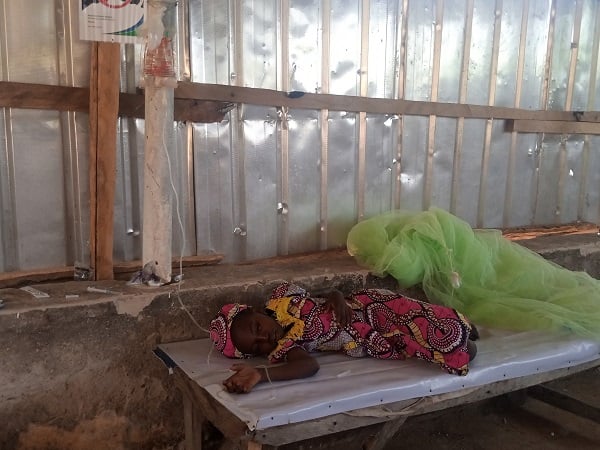
“If you look at where we isolate those with cholera cases, it is not convenient. It’s just a shade instead of a proper building,” said Aminu Ibrahim Gala, the administrative secretary of the hospital.
“We need equipment, drugs, and other materials because a lot of the cholera patients are suffering,” he lamented. “Before cholera started, we were buying a litre of IV fluids less than N500 but since the outbreak, it’s more than N2,000 and you can’t get it easily unless you visit black markets.”
Advertisement
In addition to the lack of manpower and poor infrastructure in several health facilities visited by TheCable, access to healthcare is also a challenge in some communities – typical of Nigeria’s health sector over the years.
In spite of many strikes embarked upon by health workers – often to protest issues such as poor welfare and inadequate funding — the sector still suffers with the government often failing to walk its talk.
Advertisement
Nigeria, Africa’s most populous country, has failed to reach the 15 percent allocation of the annual federal government budget to the health sector — 20 years after the African Union (AU) members jointly made the resolution at a summit in Abuja. The country’s highest allocation to the health sector has been seven percent, which is a far cry from the 2001 declaration.
Apart from inadequate manpower and poor welfare of the health workforce, communities struggling to contain the cholera outbreak are littered with Water, Sanitation and Hygiene (WASH) projects – a key component in NCDC’s response strategy to the disease. But most of the projects were either abandoned before completion or have stopped functioning.
Advertisement
Across Bauchi, Warji, and Ganjuma LGAs in Bauchi state, residents live in unhygienic conditions while some of the WASH projects that could have helped tackle the outbreak are mostly not operational.
At Marji Tuya district in Warji LGA, for instance, residents find it difficult to get clean and safe water, but ironically, at the heart of the area is a motorised borehole project being taken over by bush, just like another tagged ‘Hygiene, Sanitation Facility, and Solar Borehole’ in Kafin Madaki, Ganjuwa LGA.
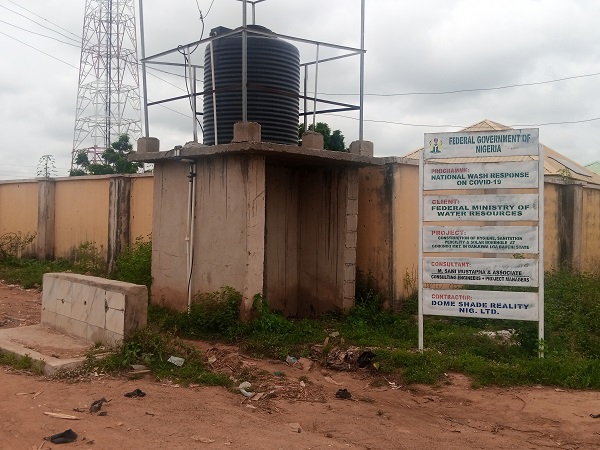
In Kano as well, a number of WASH projects initiated by the state and federal governments are rotting away, including a solar-powered borehole at the Infectious Diseases Hospital (IDH) sponsored by Ibrahim Shekarau, the lawmaker representing Kano Central at the senate.
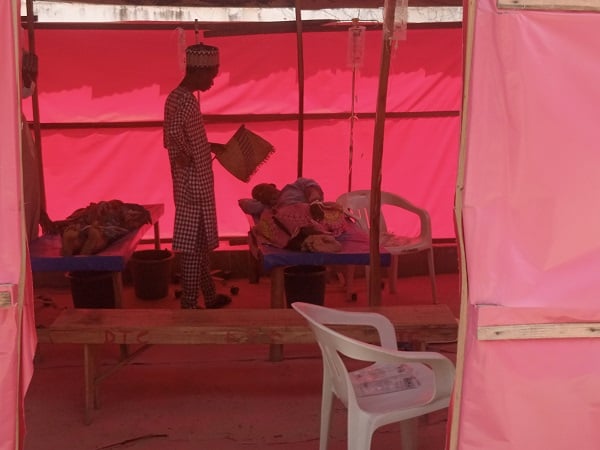
The ripple effects leave a sour taste in the mouth: In Sumaila LGA in Kano, “human beings and cattle drink from untreated dams in some communities,” said Auwalu Mohammad, a resident of the area.
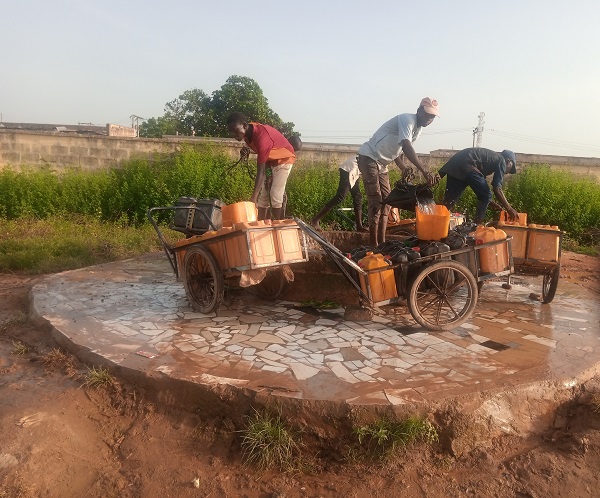
CHILDREN WORST HIT BY CHOLERA YET UNPROTECTED
The United Nations Children Education Fund (UNICEF) says nine out of ten schools in Nigeria do not have hand-washing facilities while 26.5 million Nigerian children do not have enough water to meet their daily needs.
With the lack of clean water and good hygiene prevalent in most schools, those at highest risk of contracting cholera are children who the NCDC says are the most affected by the disease.
Despite this worrying reality, there is little on the ground to protect children in states battling the disease, according to findings by TheCable. Across Kano and Bauchi, identifying schools with both clean water supply and well-maintained toilet facilities is like finding a needle in a haystack.
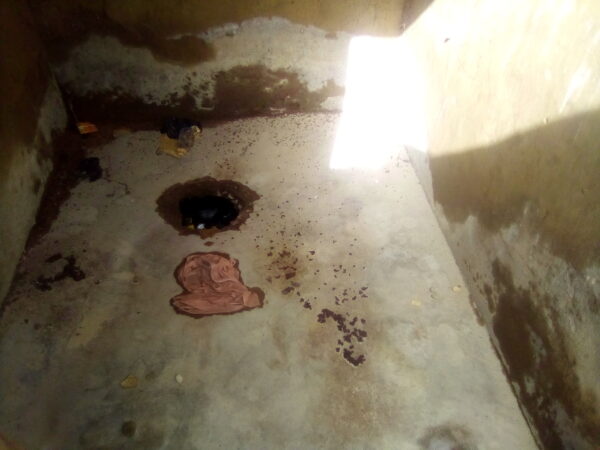
At Kofar Dumi Primary School in Bauchi metropolis where open defecation is the norm, Hussaini Usman, the headmaster, said the school lacks a good source of water supply despite its population of over 4,800 students.
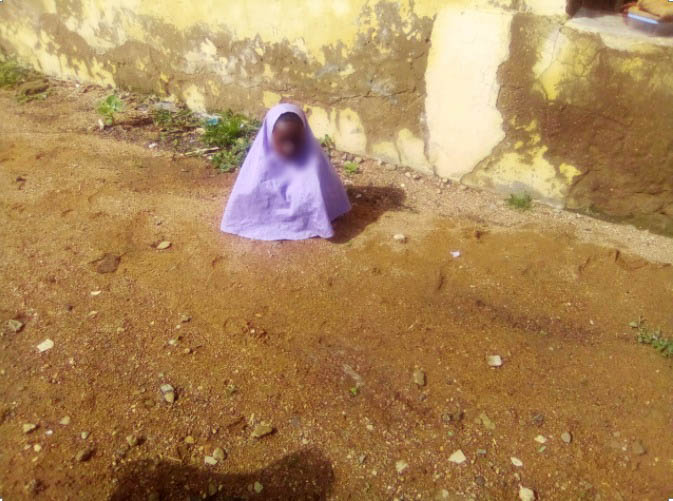
“We have water but it’s not drinkable… we don’t have good toilets, the available ones have been abandoned and unwashed,” said Abdulwahhab Ahamad, an SS3 student of Government Senior Secondary School, Dakata in Nassarawa LGA of Kano, where students defecate in the open.
“I’m scared of dying from cholera,” he added.
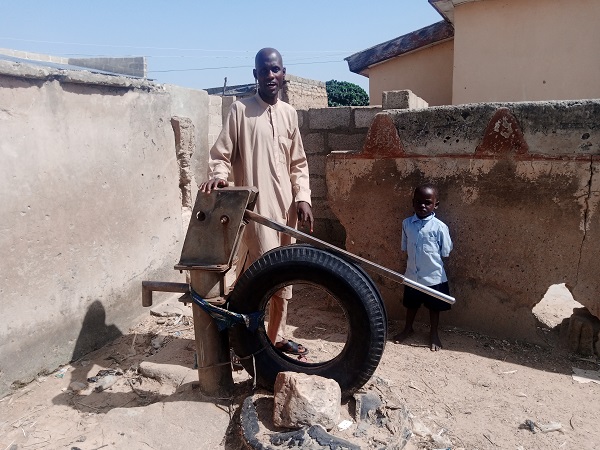
GAPS IN GOVERNMENT’S RESPONSE IN STATES BATTLING CHOLERA
In Kano and Bauchi, TheCable found evidence of the lack of adequate surveillance and coordination in the government’s response to communities and health facilities grappling with cholera.
Months before cholera became prevalent at the general hospital in Ganjuwa LGA, Kano, the facility alerted the government to some cases but nothing was done, according to Saidu Mohammed, head of the cholera unit.
“Before the outbreak became serious, we already recorded some cases. At least every month, we alerted the government that we have gastroenteritis — an intestinal infection marked by diarrhoea, cramps, nausea, vomiting, and fever — cases and sent for them in order to take necessary actions before the matter escalated,” he said.
“But the government did not take any action on the matter, so it got worse.”
Babaji Hamidu, the hospital’s senior nurse, said there are usually delays in the arrival of items released by the state government, and when some of the items eventually arrive, the actual quantity “would have been compromised”.
Another gap in the government’s response to cholera in the two states is the lack of sustainability and continuity in efforts to tackle the outbreak headlong. For instance, in Bauchi, Sumaila, and Gaya LGAs, health officials and residents told TheCable that the government only deployed officials to chlorinise water and fumigate areas where cholera cases are discovered at the early stages.
In far away Sheikh Aminu Tsangaya Islamic school in Bauchi metropolis where a student was first diagnosed with cholera in July, Mukhtar Aminudeen, the school’s founder, said there are only two toilets for 150 students.
Aminudeen said when the cholera case was recorded, a government delegation visited the school, fumigated it, and promised to construct more toilets – but that was the last they heard from the officials.
GOVERNMENT OFFICIALS RESPOND
Confronted with the situation across states, Osagie Ehanire, health minister, told TheCable that his ministry “supports all state ministries of health, whose schedule are rural/primary health centres & WASH”.
Sharon Ikeazor, minister of state for environment, was more forthcoming with steps she said were being taken to address the situation. She told TheCable that shortly after the cholera outbreak became prevalent, the ministry activated several measures across the country to contain the disease.
These, she said, include “activation of sanitation desks in the 36 states and the FCT, establishment of community-based waste management programme, construction of community toilets, and sensitisation of households against open defecation”.
In Kano, Aminu Tsanyawa, the state’s health commissioner; Kabir Ibrahim, environment commissioner; and Wada Bello, director of public health and disease control, did not reply TheCable’s inquiries on the matter.
A similar scenario played out in Bauchi when TheCable reached out to Salaima Katha, the health commissioner; Hamisu Mua’zu Shira, environment commissioner; and Benjamin Gandi, the state epidemiologist.
Emeka Oguanuo, NCDC’s spokesman, said the agency is providing the needed support to states experiencing cholera and that each state should primarily be responsible for putting in place WASH facilities for communities.
Oguanuo said the NCDC only offers additional support if an outbreak is beyond the capacity of the various states.
But based on the findings of TheCable, the capacity of states is sorely lacking, and unless it is boosted, people like Safiya Mohammed who already lost the breadwinner of her family to cholera will continue to live in fear of losing more, while many children will always be at risk of contracting cholera.
This is a special investigative project by Cable Newspaper Journalism Foundation (CNJF) in partnership with TheCable, supported by the MacArthur Foundation. Published materials are not views of the MacArthur Foundation.
Add a comment
